10 Recommended Ideas for Leveraging AI Agents
AI agents are gaining attention as powerful tools for automating and streamlining operations. For technology-driven companies in particular, reducing repetitive tasks, accelerating data analysis, and enhancing customer support are critical to boosting competitiveness. However, many organizations face challenges such as “where to start” and “how best to deploy them” when considering adoption.
This article provides a clear overview of how AI agents work, followed by 10 practical use ideas specifically designed for technology enterprises. Emphasizing real-world integration such as API connectivity and cloud integration, it offers detailed, actionable examples for development support, sales and support automation. Use these insights as a starting point for transforming your own operations.
1. What is an AI Agent?
An AI agent is software that autonomously performs tasks using artificial intelligence. While generative AI focuses on conversation and text generation, AI agents go further, making decisions based on data and environment to automate diverse business operations such as customer support, code generation, and data analysis.
For technology companies, a key advantage is seamless connection to existing systems through API integration and cloud connectivity. This can dramatically improve development efficiency and enable real-time analysis. The next section details the key points to consider when adopting AI agents.
2. Key Points for Adopting AI Agents
2.1 Clarifying Challenges and Needs
Clearly defining your goals is the first step toward successful implementation. For example: improving development efficiency, automating customer service, or enhancing data analysis. Technology companies in particular should not overlook the need for API integration with existing systems such as CRM or ERP. Careful mapping of business challenges lays the foundation for an optimal deployment strategy.
2.2 Verifying Features and Extensibility
Beyond checking core capabilities such as natural language processing, task automation, and API integration, you should evaluate cloud scalability and customisation potential. If considering open-source tools, also assess the strength of their user community and the availability of plugins.
2.3 Evaluating Cost and Support Structure
Total cost of ownership needs careful review, including initial setup fees, operating costs, API usage charges, and cloud costs. Equally important is the post-deployment support system (e.g., documentation, training, responsiveness). A robust support structure is critical to long-term success.
By keeping these points in mind, technology companies can select AI agents that maximise the benefits of data analysis and business automation. In the next section, we’ll introduce 10 detailed, practical ideas for putting AI agents to work.
3. 10 Practical Ideas for Leveraging AI Agents
We have carefully selected 10 practical ideas tailored for technology companies, covering development support, business process automation, customer service, and data analysis. Each idea includes a clear subheading, detailed explanation, and actionable recommendations to help you design effective deployment strategies.
3.1 Automating Customer Support
AI agents can significantly streamline customer support operations by enabling 24/7 response capabilities.
Overview:
Automatically handle customer inquiries and deliver accurate answers. Automate support ticket classification and response suggestions.
Use Cases:
FAQ auto-responses, technical support inquiries. For example, automating troubleshooting for software issues.
Benefits:
Reduces response times, improves customer satisfaction, lowers staffing costs.
Technical Points:
Integrates with CRM systems (e.g., Zendesk) and chat tools (e.g., Slack) via API. Cloud-based real-time processing.
Recommended Approach:
Train AI agents on historical inquiry data to deliver personalized, context-aware responses.
Strategic Insight: Automating customer support with AI agents improves the overall customer experience while reducing the burden on your support team—a critical advantage for technology companies aiming to build trust through fast, reliable service.
3.2 Streamlining Sales Processes
Automate sales lead management to maximize sales team performance.
Overview:
Automate lead prioritization and follow-ups. Analyze customer data to propose optimized sales strategies.
Use Cases:
Automated email nurturing, lead scoring. For example, automatically generating proposal documents for technology products.
Benefits:
Maximizes sales opportunities, reduces manual work, boosts team productivity.
Technical Points:
Integrates with CRMs like Salesforce via API. Leverages AI-based data analysis to predict customer behavior.
Recommended Approach:
Train AI agents on purchase history to improve targeting precision.
Strategic Insight: By automating sales processes, technology companies can ensure efficient lead management and adopt data-driven sales strategies to accelerate revenue growth.
3.3 Supporting Development Processes
Leverage AI agents to accelerate code generation and bug fixing, dramatically boosting development speed.
Overview:
Automate code completion and error correction. Assist developers throughout the workflow.
Use Cases:
API endpoint code generation, code review support. For example, speeding up backend development.
Benefits:
Shortens development time, reduces errors, lightens engineers’ workloads.
Technical Points:
API integration with tools like Visual Studio Code or CI/CD pipelines. Cloud-based high-speed processing.
Recommended Approach:
Have AI agents learn repository context to generate project-specific code.
Strategic Insight: Supporting the development process with AI agents accelerates innovation, enabling faster, higher-quality delivery to market.
3.4 Automating Data Analysis and Report Generation
AI agents can automate data collection and reporting, supporting faster, data-driven decision-making.
Overview:
Aggregate and unify data from multiple sources to generate reliable reports.
Use Cases:
Creating reports on technology trends or market data. For example, summarizing cloud service market trends.
Benefits:
Reduces analysis time, provides high-quality insights, enables faster decisions.
Technical Points:
API integration with internal databases and external sources. Real-time data analysis in the cloud.
Recommended Approach:
Train AI agents on data patterns to build predictive models.
Strategic Insight: Automating data analysis strengthens strategic planning by providing accurate, timely information to decision-makers.
3.5 Automating Project Management
AI agents can manage project tasks, streamlining complex project execution.
Overview:
Coordinate multiple agents to divide tasks. Automatically track project progress.
Use Cases:
Creating technical documentation, drafting project plans. For example, auto-assigning product development tasks.
Benefits:
Improves task management efficiency, strengthens team collaboration, shortens delivery timelines.
Technical Points:
API integration with project management tools (e.g., Jira). Multi-agent collaboration capabilities.
Recommended Approach:
Set up role-based agents (e.g., researcher, writer) to build efficient workflows.
Strategic Insight: Automating project management with AI agents improves team operations, increases project success rates, and delivers faster results.
3.6 Supporting Specialized Research
AI agents can streamline industry research and corporate analysis, enabling highly specialized, high-quality research support.
Overview:
Deploy specialized agents to verify data from multiple sources and deliver high-accuracy information.
Use Cases:
Competitor financial analysis, academic paper research. For example, generating AI market trend reports.
Benefits:
Reduces research time, ensures reliable data collection, and strengthens strategic planning.
Technical Points:
API integration with academic databases and internal data sources. Cloud-based, scalable processing.
Recommended Approach:
Use domain-specific agents (e.g., financial analysis agent) to reinforce targeted research.
Strategic Insight: Supporting specialised research with AI agents empowers data-driven decision-making by ensuring timely, accurate insights.
3.7 Accelerating Cloud Development
AI agents can automate cloud environment development, accelerating cloud-native development cycles.
Overview:
Automate coding, testing, and deployment. Strengthen integration with cloud services.
Use Cases:
Developing applications on AWS or Azure. For example, rapidly building serverless APIs.
Benefits:
Shortens development cycles, reduces errors, optimizes cloud resource utilization.
Technical Points:
API integration with cloud services (e.g., AWS). Highly scalable, cloud-native architecture.
Recommended Approach:
Train AI agents on cloud architecture patterns to generate optimized code.
Strategic Insight: Accelerating cloud development with AI agents enhances a technology company's development capabilities and enables faster market delivery.
3.8 Automating Office Operations
AI agents can automate document management and data entry tasks, improving office work efficiency.
Overview:
Automate repetitive tasks and accept natural-language commands to streamline collaboration.
Use Cases:
Organizing meeting minutes, automating data entry. For example, drafting technical specifications.
Benefits:
Reduces manual tasks, improves accuracy, enhances team productivity.
Technical Points:
API integration with Google Drive or Microsoft 365. Supports multimodal cloud workflows.
Recommended Approach:
Train AI agents to learn routine tasks for seamless day-to-day operations.
Strategic Insight: Automating office operations boosts team productivity and strengthens collaboration through streamlined workflows.
3.9 Customizing Workflows
AI agents enable the creation of custom workflows tailored to a company’s unique business needs.
Overview:
Build custom agents via no-code tools to automate internal processes.
Use Cases:
Automating expense reporting, schedule management. For example, auto-assigning project tasks.
Benefits:
Optimizes business processes, improves customization, reduces employee workload.
Technical Points:
API integration with Microsoft 365 or ERP systems. Cloud-based scalability.
Recommended Approach:
Leverage no-code platforms to quickly build industry-specific agents.
Strategic Insight: Customizing workflows with AI agents delivers maximum operational flexibility and process optimization for enterprise needs.
3.10 Streamlining Information Gathering
AI agents can efficiently gather and synthesise technical trends and market data, supporting reliable information collection.
Overview:
Use conversational search to aggregate data from multiple sources and deliver concise, summarised answers.
Use Cases:
Researching the latest AI technology trends, competitive analysis. For example, generating market trend reports.
Benefits:
Accelerates information gathering, provides accurate data, and enhances competitive positioning.
Technical Points:
API integration with internal databases and external sources. Fast, cloud-based processing.
Recommended Approach:
Train AI agents on search patterns to automatically generate periodic reports.
Strategic Insight: Streamlining information gathering with AI agents accelerates strategic decision-making and strengthens market competitiveness through reliable data.
Summary
The 10 recommended ideas for leveraging AI agents offer practical guidance for technology companies aiming to achieve business process automation and improve productivity. We have introduced diverse use cases across customer support, sales processes, development support, data analysis, and project management.
When adopting AI agents, it is critical to first clarify your specific challenges and goals, then carefully evaluate the required functions, scalability, cost, and available support structure. By leveraging API integrations and data analysis, technology companies can reinforce data-driven operations.
We recommend starting with small-scale PoCs or open-source tools to quickly test these AI agent ideas and realise practical operational transformation.
Frequently Asked Questions
Q1. What is the difference between an AI Agent and a Chatbot?
A1.
At first glance, AI agents and chatbots may appear similar, but they serve very different roles and have distinct capabilities.
A chatbot is primarily designed for predefined, scripted question-and-answer interactions—a passive response system that follows preset dialogues.
In contrast, an AI agent has more advanced decision-making capabilities. It can autonomously execute tasks based on context and data, such as classifying inquiries, routing them to the appropriate department, generating reports, or registering data into a CRM.
In other words, an AI agent functions as a business automation engine that goes far beyond the scope of a simple chatbot.
Q2. How much development skill is needed to implement an AI agent in-house?
A2.
Implementing AI agents doesn’t always require advanced programming skills. Thanks to the evolution of no-code and low-code platforms, even non-engineers can design, build, and manage AI agents.
However, for technology companies, there may still be scenarios requiring technical expertise—such as API integration with existing systems, designing automated task flows, or preparing data in advance.
Close collaboration between engineers and business teams can deliver more flexible and precise automation. We recommend starting with a small-scale proof of concept (PoC) to enable smooth adoption that aligns with your team’s skill level.
Q3. What are the security risks associated with AI agents?
A3.
Since AI agents operate at the core of business processes, robust security measures are critical. The main risks include:
- Eavesdropping: Data transmitted via APIs or the cloud must be protected with encryption technologies such as TLS.
- Unauthorised Access: When AI agents handle sensitive information, strict access controls (e.g., RBAC) and authentication are essential.
- Data Leakage: Errors in learning or software bugs could result in unintended data exposure.
- Dependence on External Services: When using many external APIs or SaaS providers, your security also depends on their standards.
Before deployment, review your company’s information security policies and governance structures, and ensure alignment with internal data protection requirements. Selecting services that comply with standards such as ISO/IEC 27001 or SOC 2 can also be highly effective.


 EN
EN JP
JP KR
KR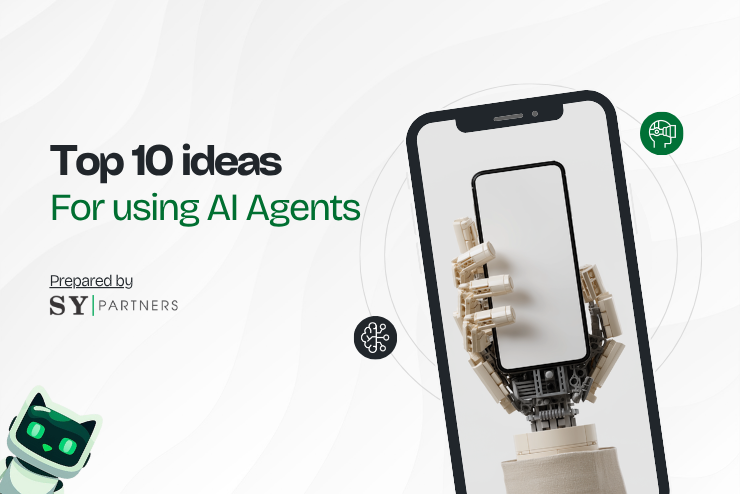


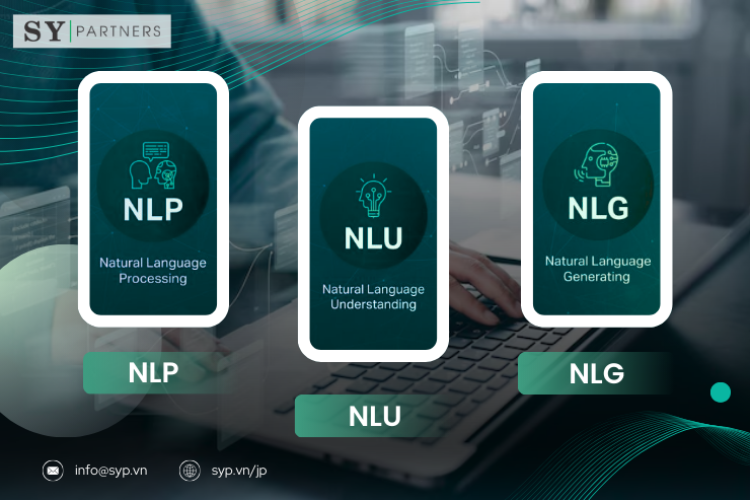
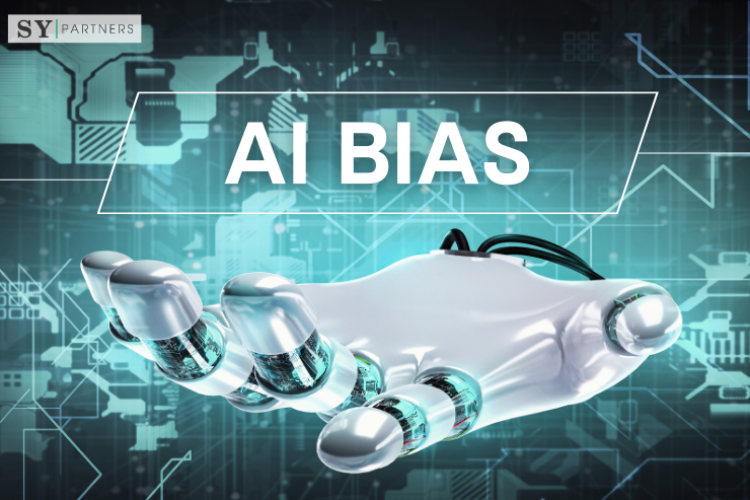
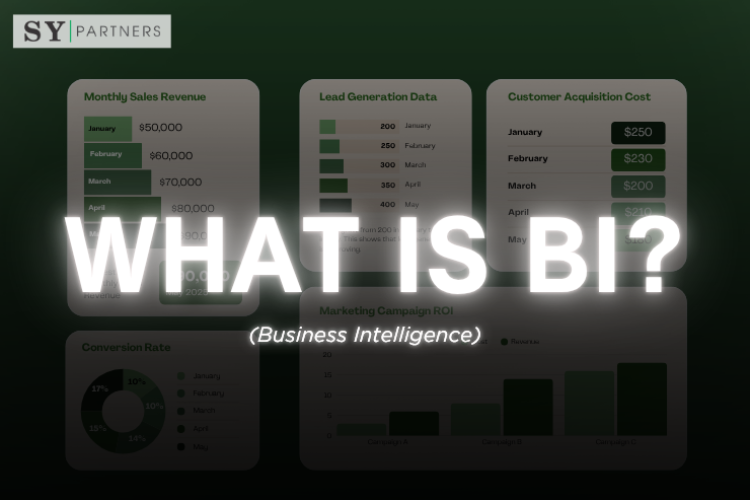




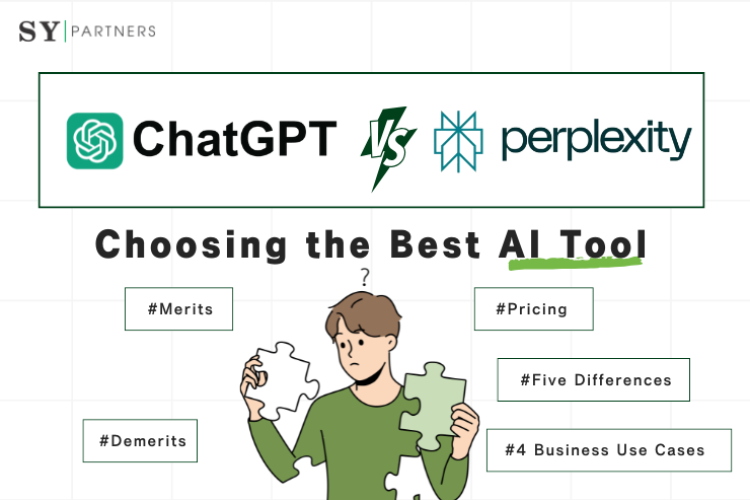
![[For Enterprises] Adoption Rate of Microsoft Copilot and 8 Key Business Use Cases](/sites/default/files/styles/medium/public/articles/%5BFor%20Enterprises%5D%20Copilot%20%E2%80%94%20Corporate%20Adoption%20Rate%20and%208%20Business%20Use%20Cases.png?itok=6MVSPst9)
![[For Enterprises] Grok — Corporate Adoption Rate and 8 Business Use Cases](/sites/default/files/styles/medium/public/articles/%5BFor%20Enterprises%5D%20Grok%20%E2%80%94%20Corporate%20Adoption%20Rate%20and%208%20Business%20Use%20Cases%20%281%29.png?itok=3Vu1lBCh)
![[For Enterprises] Claude — Corporate Adoption Rate and 8 Business Use Cases](/sites/default/files/styles/medium/public/articles/%5BFor%20Enterprises%5D%20Claude%20%E2%80%94%20Corporate%20Adoption%20Rate%20and%208%20Business%20Use%20Cases.png?itok=tc2aEIEt)